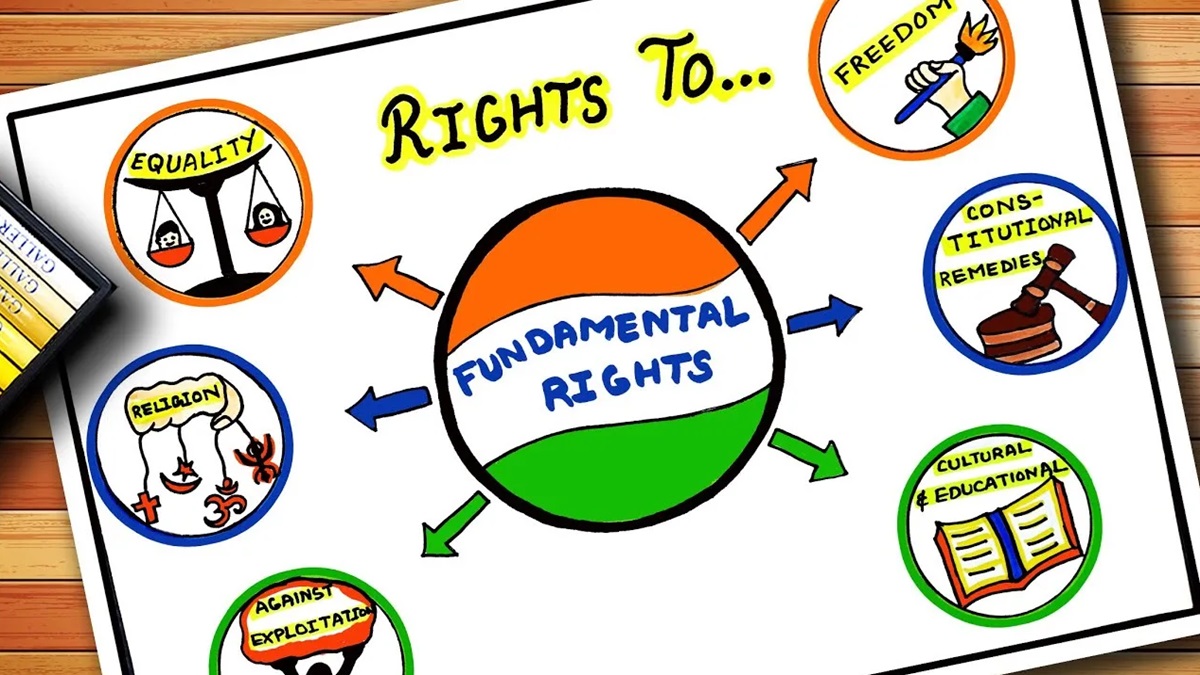Fundamental Rights in the Indian Constitution
The Constitution of India looks at every citizen of the country from the same perspective, whether he is a man or a woman. The Constitution of India is equal for all. Apart from unity in diversity, our Constitution gives right to equality in education, equality in caste, class and gender. Secularism also has prominence in the basic spirit of the Constitution, hence religious freedom is the basic identity of our Constitution and country. But apart from these, many such rights have been added to the Constitution which need to be known. Every citizen of the country should know about these rights and also implement them within the limits of the rules. Let us know which rights are given in the Constitution and law-
right to equality
People of many castes and religions live in a country like India. Here the right to equality has been added with the aim of eliminating discrimination. It means allowing citizens of any caste and gender to enter public places like shops, hotels, entertainment places, wells, bathing ghats, places of worship without discrimination. Banning this would be considered unconstitutional. The right to equality is recorded in Articles 14-18. It was created to end the evil practice of untouchability.
right to freedom
The right to freedom is given special importance in the country. The rights to freedom are covered in Articles 19-22. In democracy, freedom is considered in many meanings like freedom of expression, personal freedom, freedom to seek help of law if arrested, freedom to eat and wear etc. come under it. Restrictions could not be imposed on them. However, limits have been set on some of these rights. For example, people cannot violate the rights of others while exercising their rights.
right to religious freedom
The Constitution of India ensures secularism. Here the Constitution protects the faith, reverence and righteousness of every citizen. The rights to religious freedom are given in Articles 25-28. Article 25 gives all people the right to live with the religion of their choice. Article 27 guarantees to any citizen that no person can be forced to pay taxes for promoting any particular religion or religious institution.
Right to Education
Getting education is the fundamental right of any citizen and this right is provided to him by the Constitution of India. People have been given educational rights under Articles 29 and 30. Any kind of discrimination in providing education to people is prohibited. Apart from this, another Act was made in the Indian Parliament – which is called Right to Education. Right to Education Act means free and compulsory education for children aged 6 to 14 years in the country under Article 21(A) of the Indian Constitution.
right to Information
The Right to Information Act, included in the fundamental rights of the Indian citizen, was passed in the Parliament on 15 June 2005 and was implemented throughout the country on 12 October 2005. The RTI Act passed under Article 19(1)A gives any citizen of India the right to obtain government information from any public authority.
Also read-
Latest India News
